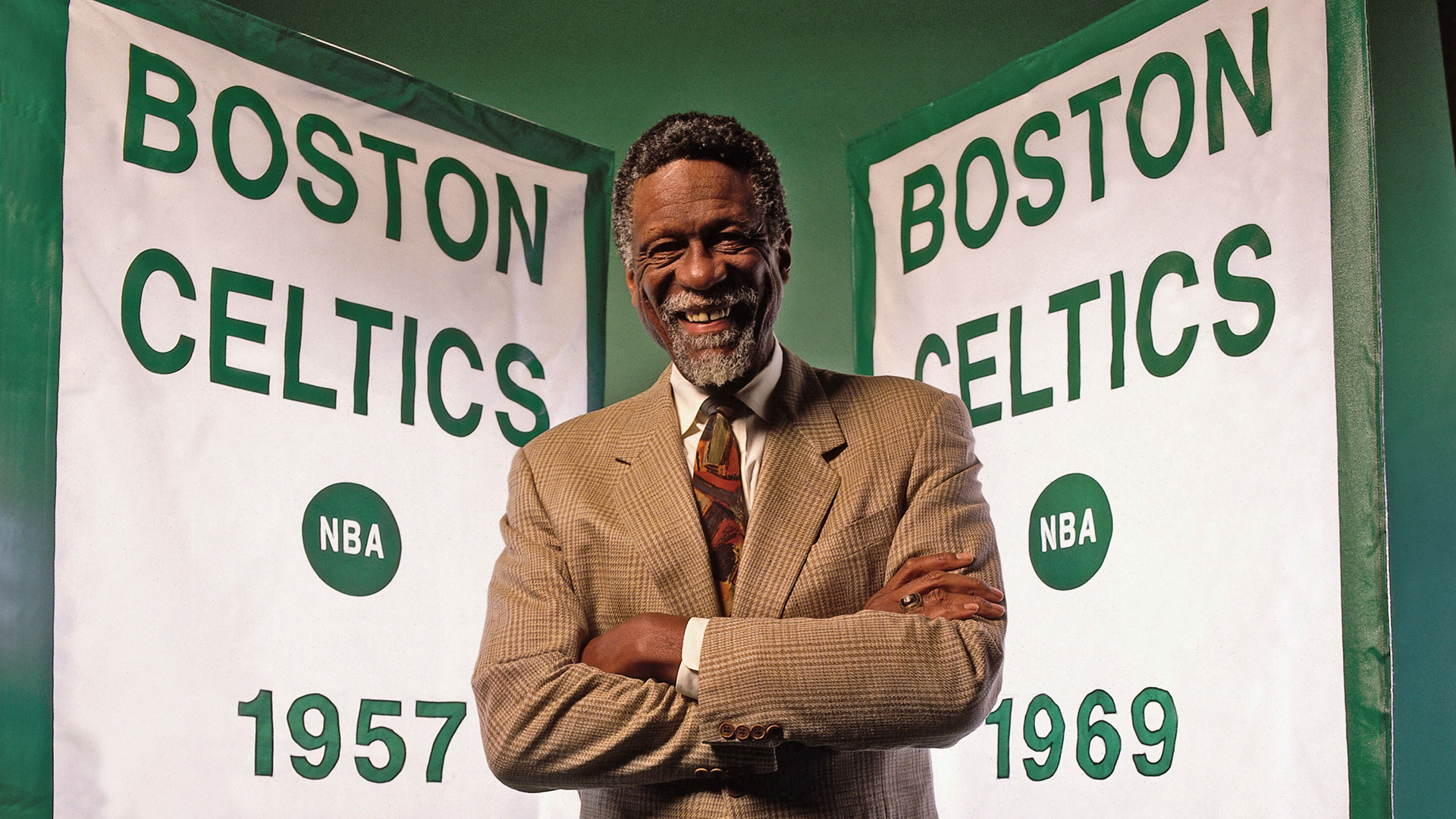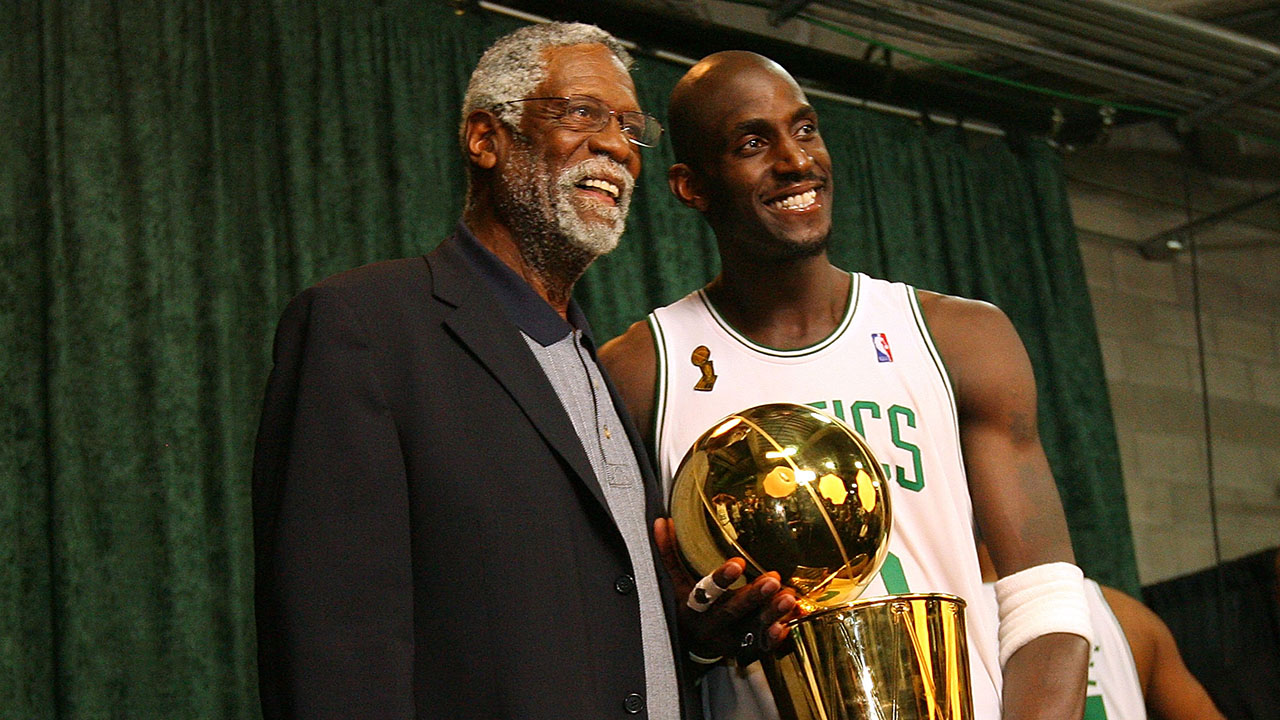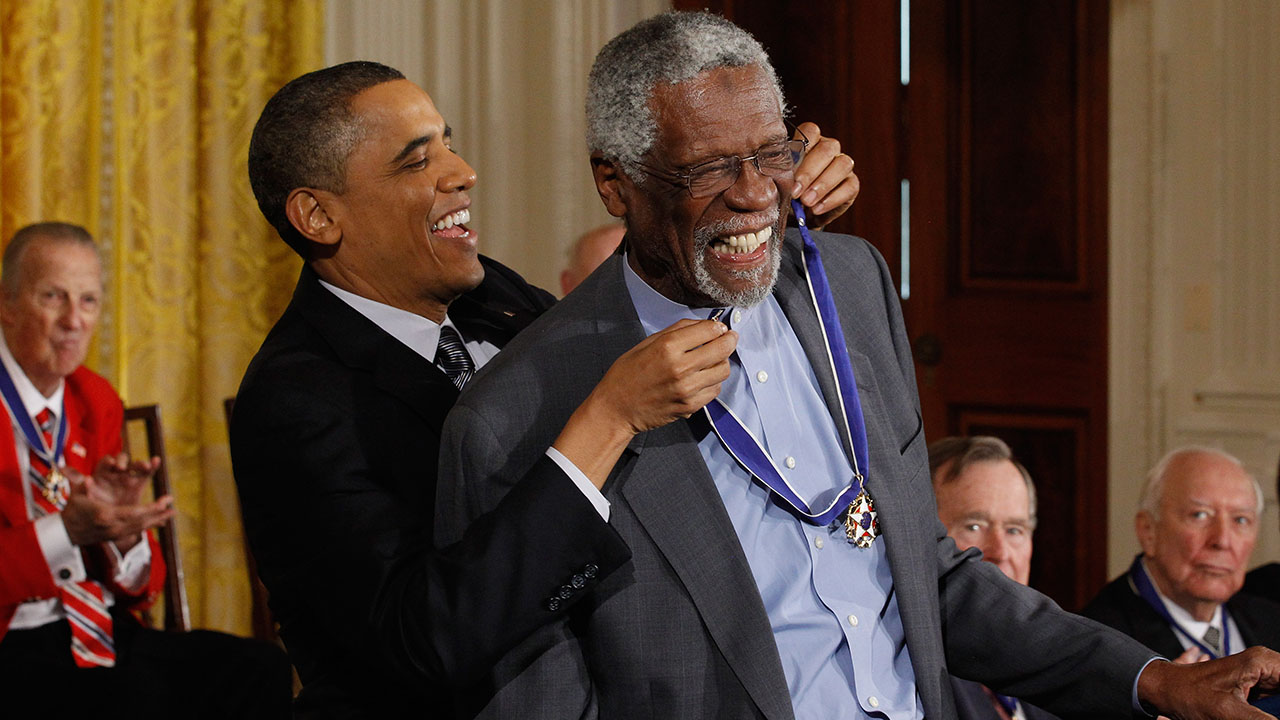Boston Celtics legend Bill Russell, who won 11 championships in 13 seasons with the team, has died, his family announced Sunday. He was 88.
A world-beater on the court and an Olympic gold medalist, Russell was also known as a pioneer in the fight for civil rights, marching with Dr. Martin Luther King Jr. and speaking out about his treatment as a Black player in a city — and country — where race was often a flash point. He broke the color barrier in major U.S. sports as its first Black head coach.
WATCH ANYTIME FOR FREE
>Stream NBC10 Boston news for free, 24/7, wherever you are. |
His family posted a message celebrating the life of one of the NBA's greatest-ever players.
"Bill's wife, Jeannine, and his many friends and family thank you for keeping Bill in your prayers. Perhaps you'll relive one or two of the golden moments he gave us, or recall his trademark laugh as he delighted in explaining the real story behind how those moments unfolded," they said.
Get updates on what's happening in Boston to your inbox. Sign up for our >News Headlines newsletter.
His death was followed by a flood of remembrances from the Celtics and NBA communities.
The Celtics issued a team statement Sunday mourning his passing and celebrating his "enormous legacy in basketball, Boston, and beyond."
"To be the greatest champion in your sport, to revolutionize the way the game is played, and to be a societal leader all at once seems unthinkable, but that is who Bill Russell was," the team wrote. "Bill was a champion unlike any other in the history of team sports - an 11-time NBA champion, including winning eight consecutive titles, a five-time MVP, an Olympic Gold Medalist and the NBA’s first Black head coach."
"Bill Russell's DNA is woven through every element of the Celtics organization, from the relentless pursuit of excellence, to the celebration of team rewards over individual glory, to a commitment to social justice and civil rights off the court."
Wyc Grousbeck, Steve Pagliuca and the Boston Celtics ownership group also released a brief statement saying Russell "embodied character and commitment and he was truly one of the finest people to ever live."
"He will be remembered forever and deservedly so."
More Bill Russell stories
NBA Commissioner Adam Silver called Russell "the greatest champion in all of team sports."
Easily among the 75 greatest players in NBA history, Russell was named the league's Most Valuable Player five times and was an All-Star 12 times. The 6-foot-9 center changed the way defense was played in the league.
“Bill stood for something much bigger than sports: the values of equality, respect and inclusion that he stamped into the DNA of our league. At the height of his athletic career, Bill advocated vigorously for civil rights and social justice, a legacy he passed down to generations of NBA players who followed in his footsteps," Silver said in a statement. "Through the taunts, threats and unthinkable adversity, Bill rose above it all and remained true to his belief that everyone deserves to be treated with dignity."
PHOTOS: The Life of NBA, Celtics Great Bill Russell
Russell won a pair of state championships in high school at McClymonds in Oakland, California, followed by two more NCAA titles at the University of San Francisco and then and won a gold medal in 1956 at the Melbourne Olympics in Australia.
Eleven titles with the Celtics -- including two as a player-coach -- followed, bringing his total to 16.
He remains basketball's most prolific winner and an archetype of selflessness who won with defense and rebounding while leaving the scoring to others. Often, that meant Wilt Chamberlain, the only player of the era who was a worthy rival for Russell. But Russell dominated in the only stat he cared about: 11 championships to two.
The native of Louisiana also left a lasting mark as a Black athlete in America. He was at the March on Washington in 1963, when Martin Luther King Jr. gave his “I Have a Dream” speech, and he backed Muhammad Ali when the boxer was pilloried for refusing induction into the military draft.
In 2011, President Barack Obama awarded Russell the Medal of Freedom alongside Congressman John Lewis, billionaire investor Warren Buffett, German Chancellor Angela Merkel and baseball great Stan Musial.
“Bill Russell, the man, is someone who stood up for the rights and dignity of all men,” Obama said at the ceremony. “He marched with King; he stood by Ali. When a restaurant refused to serve the Black Celtics, he refused to play in the scheduled game. He endured insults and vandalism, but he kept on focusing on making the teammates who he loved better players and made possible the success of so many who would follow.”
Russell said that when he was growing up in the segregated South and later California his parents instilled in him the calm confidence that allowed him to brush off racist taunts.
“Years later, people asked me what I had to go through,” Russell said in 2008. “Unfortunately, or fortunately, I’ve never been through anything. From my first moment of being alive was the notion that my mother and father loved me.” It was Russell’s mother who would tell him to disregard comments from those who might see him playing in the yard.
Get updates on what's happening in Boston to your inbox. Sign up for our News Headlines newsletter.
“Whatever they say, good or bad, they don’t know you,” he recalled her saying. “They’re wrestling with their own demons.”
But it was Jackie Robinson who gave Russell a road map for dealing with racism in his sport: "Jackie was a hero to us. He always conducted himself as a man. He showed me the way to be a man in professional sports.”
The feeling was mutual, Russell learned, when Robinson’s widow, Rachel, called and asked him to be a pallbearer at her husband’s funeral in 1972.
“She hung the phone up and I asked myself, ‘How do you get to be a hero to Jackie Robinson?’” Russell said. “I was so flattered.”
Born on Feb. 12, 1934, in Monroe, Louisiana, Russell was originally selected by the St. Louis Hawks with the second overall pick in the 1956 NBA Draft. But Red Auerbach orchestrated a trade with the Hawks that sent six-time All-Star Ed Macauley -- along with the draft rights to Cliff Hagan -- to St. Louis in exchange for the rights to Russell.
Both Hagan and Macauley wound up in the Basketball Hall of Fame as well, but the selection of Russell -- along with future Hall of Famers Tommy Heinsohn and K.C. Jones in 1956 -- set the stage for Boston's run as the premier NBA dynasty throughout the rest of the '50s and well into the 1960s.
Russell's last two championships came as a coach as well as a star of the Celtics -- he took over coaching duties from Auerbach after the 1966 title.
After retiring from the NBA as a player, a 963-game career in which he averaged 15.1 points and 22.5 rebounds per game, Russell spent four seasons as head coach of the Seattle SuperSonics from 1973-77 and one season with the Sacramento Kings in 1987-88.
Russell's No. 6 jersey has been retired by the Celtics since 1972.
The Associated Press' Jimmy Golen contributed to this report.




